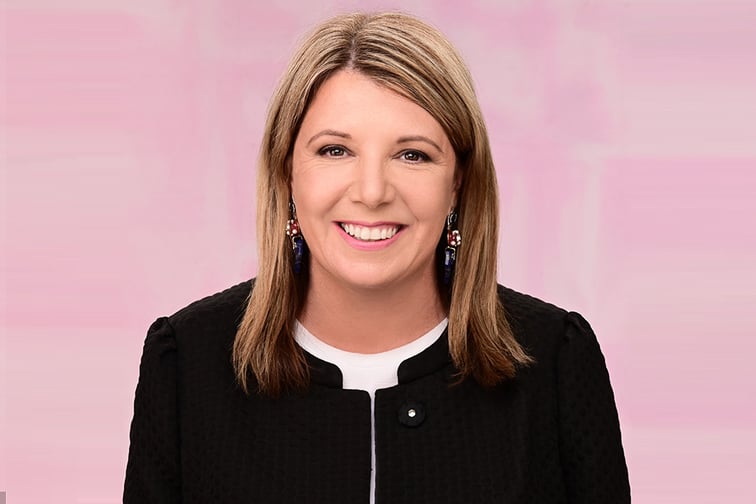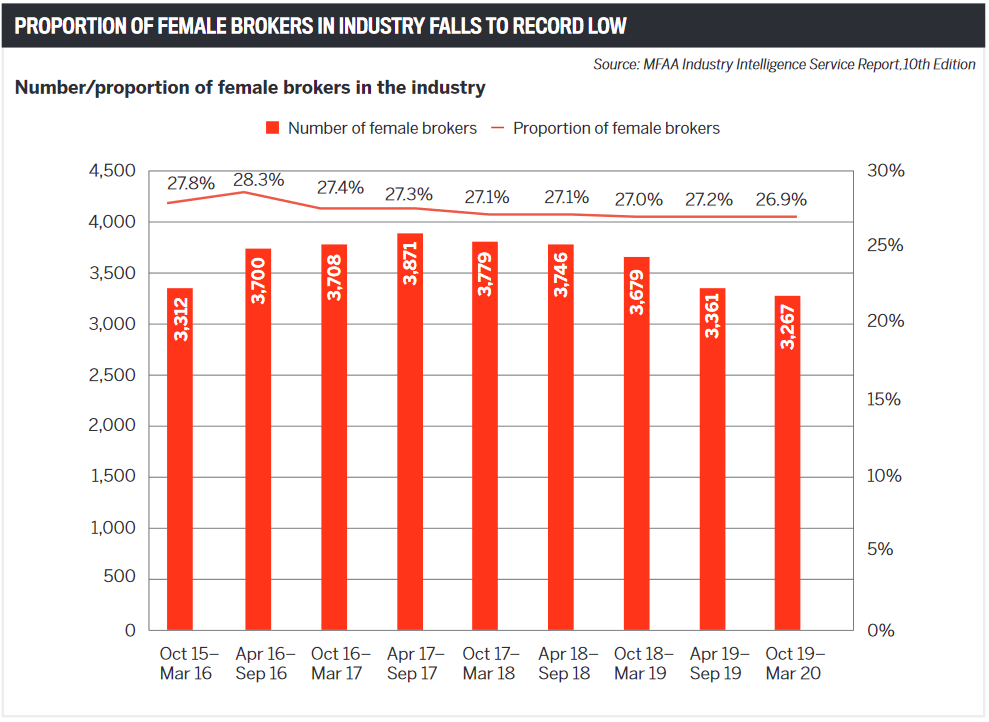

As the world celebrates International Women’s Day, Jane Counsel, lead adviser on the MFAA’s Opportunities for Women program, is hoping the finance industry will come together to encourage more females to become brokers.
The MFAA has completed its third Opportunities for Women report, to be released on International Women’s Day on 8 March. It examines why females remain under-represented in broking and identifies new initiatives to turn this around.
Jane Counsel, who provides leadership training, coaching, and diversity and inclusion consulting services through her company Jane Counsel & Associates, helped set up the MFAA’s Opportunities for Women program as its lead adviser. As former head of diversity and flexibility at Westpac, she helped the bank achieve 40% of women in leadership roles two years ahead of schedule and become a top three employer for LGBTI employees.
Opportunities for Women is also supported by the MFAA Community Panel, made up of various brokers and sponsored by ANZ, CBA, Suncorp, AMP, Beyond Bank, Connective, Heritage Bank, ING, Prospa and Smartline.
Counsel says the first MFAA report into female broker numbers was published in 2018.
“That kind of set the benchmark around knowing what was our true representation, what were the key themes that were emerging, what were the differences in perceptions of men and women, and what were the key opportunities,” Counsel says.
“The data was telling them that they were losing women and where they had forecast female representation to be in mortgage broking was actually not meeting that expectation and was actually going backwards.”
Data from the latest MFAA Industry Intelligence Service Report shows that the proportion of female brokers in the industry fell by 0.3 percentage points to 26.9% in March 2020. This was its lowest-ever share and the first time it had fallen below 27%. The number of female brokers also fell. Between October 2018 and October 2019, there were 412 fewer female brokers in the industry – a reduction of 11.2%.
Counsel says this trend has been observed for a while, and the reasons include work-life balance and the pressure of women being primary caregivers.
A cross section of industry participants were surveyed in October 2020 and asked why they thought more women than men were leaving the industry.
The top three responses from females were: pressure of being a primary caregiver and managing their work-life balance; perception of a ‘boys club’ culture; and harder to earn an income and/or increased legislative requirements.
Male respondents’ top three reasons why women were leaving the industry were: starting families and/or the pressures of family and caring; stress from continuous changes in compliance and lending criteria; and lack of job security and becoming harder to earn an income.
“There’s definitely added stress around complexity now with the additional onus of compliance that’s putting pressure on women. It’s also putting pressure on male brokers,” says Counsel. “People say it’s harder to earn an income, and it’s much more difficult to get outcomes as a broker than it was previously.”
The research also shows there has been a big improvement in male perceptions about the barriers women face in broking.
When male respondents were asked in 2018 whether there were any barriers to women working in the industry, 71.73% said there were none. In 2020, that figure dropped to 50%.
Counsel says there has also been a big drop in the number of males who don’t think women are under-represented in broking, from 59% in 2018 to 48% in 2020.
She says this is due to a number of factors – awareness of the data, greater conversations between men and women, and even the MeToo and Black Lives Matter movements.
“We’re definitely seeing a lot more awareness, we’re definitely seeing a lot more good intent; there’s a lot of investment in initiatives to support women.
“I guess the question is, are we putting our focus and our money where it’s having the most impact, and is there more we could be doing, and we definitely think there is.”
Another recurring barrier for new female brokers is financial outcomes not meeting expectations.
“So that’s really sparked a whole heap of conversations around how do we help women better prepare for working in this industry.”
There is a push to provide more support for new female brokers, especially sole traders.
The MFAA is working on a pilot peer-to-peer support program for women which aims to provide career advice and professional support. It is expected to launch before the end of the first quarter 2021 in Queensland and SA.
“That’s a really good opportunity for people to share their stories and say, ‘I’ve been in your shoes, and this is how I managed that challenge that you have’,” Counsel says.
“If we’re going to move the dial around diversity, what are the things we can be doing to support each other as your aggregator, as a broker, as someone with influence in this industry. We’re hoping some solutions might emerge from the peer-to-peer group as well.”
Counsel says the other new initiative, which will benefit both female and male brokers, is to create an e-book to showcase brokers’ personal situations, including single parents, those caring for young children, same-sex relationships, and people with sporting or study commitments.
“People are looking for that information; they’re looking for some additional stories and support.”
Counsel says boosting the number of female brokers will happen through greater industry engagement.
“As an industry body, all the MFAA can do is promote, encourage and be an advocate for change. We’re three years into this data now and we really need the industry to start getting behind some of these initiatives.
“There’s lots of bits and pieces that are going on in the industry that different aggregation groups and banks and brokers are doing, but in terms of a holistic industry-wide approach, this is an opportunity everyone can get involved in.”
Counsel says there is no industry-wide program that creates training and development opportunities for women. So she and fellow business coach Michael Trencher, who has worked as a broker manager for various lenders and mentored women, have set up thrive4women, which they hope to launch soon.
“It’s actually responding to many of the needs women say they have in their industry.”
Counsel says in thrive4women participants will complete a coaching and professional development program and then become part of an ongoing alumni.
“This creates connectivity – it gives a sense of community and allows the participants to continue their growth and development.”
Counsel says female brokers say they want a sense of community and to tap into networks.
“If you’re a female, you’re working largely on your own in running a broking business, and you’re new to the industry and you’re going to events, and there might be five other women in the room – sometimes that can feel really, really lonely.”
The Pathway program is another MFAA initiative designed to attract more women to broking.
Historically, the profession has skewed towards male brokers because they entered the industry from banking or other finance areas, but many younger brokers now come from a variety of different industries, Counsel says.
“From the outside looking in, broking is very appealing to women for two reasons: there’s no structural pay gap ... and also the flexibility that running your own business offers.”
“In recent years, we’ve certainly been trying to promote that through the various broker mags and media about what are the positives for women working in this industry, because we believe that is very strong.”
Conversely, Counsel says expectations also need to be managed through the peer-to-peer and pathway programs to set people up for success.
“People coming into broking might expect they would be on a salary straight away, but the reality is that it takes at least six months.”
Counsel says business owners are increasingly realising the business benefits of gender and cultural diversity.
“If you get the gender piece right and women are naturally 50% of our population, then it will naturally and organically help make the industry more inclusive to everyone.”
MFAA CEO Mike Felton says he is pleased the industry is acknowledging the measurable difference in the experience that women have in broking.
“Now we need to take action as individual businesses – and as an industry – to continue to champion and drive change.”

